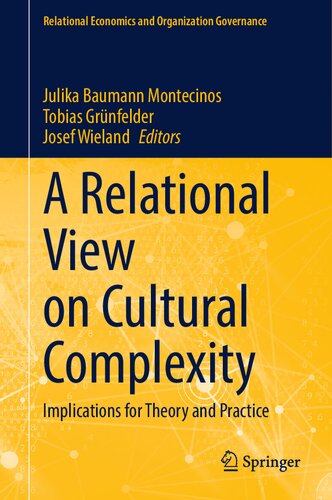

Most ebook files are in PDF format, so you can easily read them using various software such as Foxit Reader or directly on the Google Chrome browser.
Some ebook files are released by publishers in other formats such as .awz, .mobi, .epub, .fb2, etc. You may need to install specific software to read these formats on mobile/PC, such as Calibre.
Please read the tutorial at this link: https://ebookbell.com/faq
We offer FREE conversion to the popular formats you request; however, this may take some time. Therefore, right after payment, please email us, and we will try to provide the service as quickly as possible.
For some exceptional file formats or broken links (if any), please refrain from opening any disputes. Instead, email us first, and we will try to assist within a maximum of 6 hours.
EbookBell Team

0.0
0 reviewsThis book explores the conceptual and practical implications of applying a relational view to cultural complexity. The authors take the findings of an international and interdisciplinary Delphi study on transcultural competence as a starting point and offer further analysis and interpretation from their specific perspectives. Written by experts from a variety of disciplines, the book discusses the potential contributions of a relational approach to understanding and strengthening individuals and organizations in their contexts. Through various conceptual chapters, case studies and field reports, it explores the role and nature of commonalities for cooperation in contexts of cultural complexity and discusses the relationship between differences and commonalities, as well as the implications for relational leadership and management.
The book is divided into four parts, the first of which introduces readers to the relational view. In turn, the second part elaborates on transcultural competence, while the third presents various case studies and field reports on experience-based learning and relationality in culturally complex settings. Finally, the fourth part sheds new light on relational leadership and the role of commonalities in organizational practice. As such, this book will appeal to scholars and practitioners in the areas of cultural and relational economics, intercultural communication, business strategy and leadership, and organizational studies.